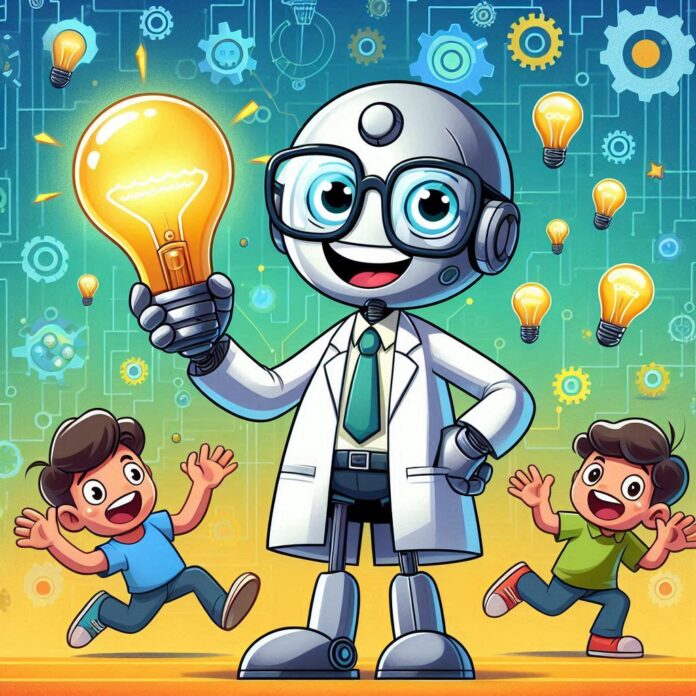How AI dependence is reshaping knowledge acquisition
Namanyay Goel, an experienced developer, is not too impressed by the new generation of keyboard-clackers’ dependence on newfangled AI models.
“Every junior dev I talk to has Copilot, Claude or GPT running 24/7. They’re shipping code faster than ever,” Goel wrote in a recent blog post, titled—fittingly—”New Junior Developers Can’t Actually Code.”
“Sure, the code works, but ask why it works that way instead of another way? Crickets,” he wrote. “Ask about edge cases? Blank stares.”
“The foundational knowledge that used to come from struggling through problems is just… missing,” he added.
No doubt chalkboard-pounding algebra teachers once grumbled about calculators, and no one would question their place now. But Goel’s gripe isn’t against AI necessarily — more so that it provides too tempting of a crutch.
Like any vocation, part of mastering it involves struggling with it first and having the courage to ask the old masters questions. In Goel’s heyday, the place to do just that was StackOverflow. The forum’s still popular, but in the post-ChatGPT age, more and more coders are turning to large language models for answers instead.
“Junior devs these days have it easy. They just go to chat.com and copy-paste whatever errors they see,” Goel wrote.
But if AI just gives the right answer, it isn’t forcing newcomers to synthesize different possibilities and grapple with thinking through the problem.
“With StackOverflow, you had to read multiple expert discussions to get the full picture,” opined Goel. “It was slower, but you came out understanding not just what worked, but why it worked.”
It’s sound logic. And some research may back up the sentiment. A recent study conducted by researchers at Microsoft and Carnegie Mellon suggested that the more people used AI—and as they placed increased trust in its answers—the more their critical thinking skills atrophied, like a muscle that doesn’t get much use.
There are some caveats to that study, like that it hinges on self-reported data from participants about their perceived effort as an indicator of critical thinking, but the idea of cognitive offloading isn’t a huge stretch.
Plus, there’s the fact that the programming ability of many of these AI models can be pretty dubious at times, as they’re all prone to hallucinating. And while they may speed up your workflow, the tradeoff is, as some evidence shows, that the tech ends up inserting far more errors into your code.
Not that we can put the genie back in the bottle. Goel argues that the “future isn’t about where we use AI—it’s about how we use it.” But right now, “we’re trading deep understanding for quick fixes,” he says. “We’re going to pay for this later.”
Beyond coding: the widening knowledge gap
The implications of AI dependence stretch far beyond the coding keyboard. Educators across disciplines are raising similar alarms about a generation of students who increasingly rely on AI for their academic work.
Dr. Elena Martinez, a professor of medical education at Stanford University, has noticed concerning trends among her students. “When I ask students to explain the pathophysiology behind a diagnosis they’ve correctly identified, many struggle to articulate the underlying mechanisms,” she explains. “They’ve asked an AI for the answer, but haven’t built the mental scaffolding that connects symptoms to systems.”
The concern is particularly acute in fields where deep understanding can literally be a matter of life and death. “Medicine isn’t just about pattern recognition,” Martinez adds. “It’s about understanding why those patterns exist and what might disrupt them. That requires foundational knowledge that can’t be outsourced.”
In legal education, where case analysis and precedent interpretation form the backbone of the profession, professors are noticing similar gaps. “We’re seeing briefs that are technically sound but lack analytical depth,” says Richard Paulson, a constitutional law professor at Columbia Law School. “The nuanced understanding of how legal principles evolved over time is increasingly rare among students who rely heavily on AI summary tools.”
The societal cost
The implications for society at large could be profound. As more professionals across fields come to rely on AI assistance without developing deep expertise, we risk creating what some experts call “hollow experts”—individuals with credentials but limited capacity to innovate beyond what their AI tools suggest.
“Innovation typically happens at the intersection of deep domain knowledge and creative thinking,” says Dr. Sarah Wong, who studies technological innovation at MIT. “When we outsource understanding, we limit our capacity to make conceptual leaps that AI, which is trained on existing knowledge, simply cannot.”
There’s also the question of resilience. Systems fail, technologies become outdated, and new challenges emerge that require flexible thinking rather than rigid application of known solutions. A workforce dependent on AI assistance may struggle to adapt when those tools reach their limits.
“We’re potentially creating a knowledge dependency that mirrors other forms of technological dependency,” warns sociologist Dr. Marcus Rivera. “Just as many people now struggle with basic navigation without GPS, we may soon see professionals who struggle with fundamental problem-solving without AI assistance.”
Finding balance
Not everyone sees the situation so bleakly. Some educators and industry leaders argue that AI tools, when properly integrated into learning environments, can actually enhance understanding rather than replace it.
“The key is using AI as a teaching tool rather than an answer machine,” says education technology specialist Jamie Kim. “When students are taught to interrogate AI responses, to ask ‘why’ and ‘how’ rather than just accepting outputs, AI can become a powerful learning companion.”
Companies are beginning to recognize the potential issue as well. Some tech firms are now developing “learning mode” versions of their AI assistants that deliberately explain reasoning steps rather than simply providing answers.
“We need to design these tools with knowledge acquisition in mind, not just productivity,” says Alex Chen, who leads an AI education initiative at a major tech company. “That means sometimes intentionally making the user work through parts of the problem themselves.”
As for Goel, he’s not suggesting we abandon AI tools entirely. Rather, he advocates for a more mindful approach to using them, particularly during formative learning stages.
“I tell junior developers to solve problems manually first,” he says. “Then, once you understand the core concepts, use AI to accelerate your work. But build that foundation first, because that’s what you’ll rely on when the AI gives you something wrong—and it will.”
As AI continues to permeate every aspect of professional life, finding this balance between leveraging technological assistance and maintaining deep understanding may become one of the defining educational challenges of our time. The answers we develop will shape not just individual careers, but the collective knowledge base of society for generations to come.
In this potential future, we might witness the emergence of two distinct cognitive classes: those who maintain the discipline to develop deep understanding alongside AI tools, and those who increasingly outsource their thinking to artificial systems. The latter group may find themselves in a peculiar position—professionally functional but intellectually hollowed, capable of operating within systems they don’t truly comprehend.
Daily life might become more efficient but intellectually shallower. Complex problems could be “solved” without being understood. Medical diagnoses delivered without comprehending the underlying biology. Legal arguments constructed without grasping jurisprudential foundations. Buildings designed without intuitive knowledge of structural principles.
This outsourcing of understanding could create a dangerous fragility in our knowledge ecosystems. When AI systems reach their limits—as they inevitably will with novel problems—those who have delegated their understanding may find themselves intellectually stranded, unable to reason beyond the boundaries of their digital assistants.
Perhaps most concerning is the potential impact on innovation itself. True breakthroughs often come from deep immersion in a subject, from the cognitive tension of wrestling with contradictions and limitations in our current understanding. If we delegate this cognitive labor to AI, we may find ourselves trapped in a cycle of incremental improvements rather than transformative insights.
The optimistic view suggests that humans might evolve new cognitive specialties—becoming experts at framing questions, synthesizing AI-generated knowledge, at identifying the limits of machine thinking. Perhaps we’ll develop new forms of intelligence that complement rather than compete with AI capabilities.
But this future is not predetermined. How we design our educational systems, how we structure our workplaces, and how we choose to engage with AI tools will shape whether we create a society of enhanced thinkers or dependent operators.
The most crucial question may not be whether AI can understand for us, but whether we will insist on understanding for ourselves. The answer will determine not just our technological future, but the very nature of human knowledge in the age of artificial intelligence.


